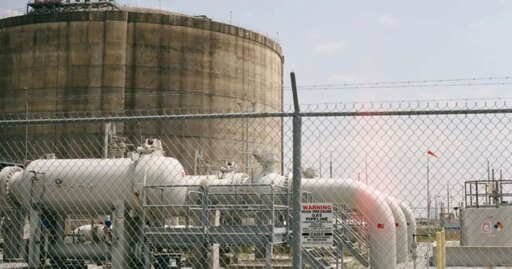In Louisiana, natural gas—a planet-heating fossil fuel—is now, by law, considered “green energy” that can compete with solar and wind projects for clean energy funding. The law, signed by Republican Governor Jeff Landry last month, comes on the heels of similar bills passed in Ohio, Tennessee, and Indiana. What the bills have in common—besides an “updated definition” of a fossil fuel as a clean energy source—is language seemingly plucked straight from a right-wing think tank backed by oil and gas billionaire and activist Charles Koch.
Louisiana’s law was based on a template created by the American Legislative Exchange Council (ALEC), a conservative organization that brings legislators and corporate lobbyists together to draft bills “dedicated to the principles of limited government, free markets and federalism.” The law maintains that Louisiana, in order to minimize its reliance on “foreign adversary nations” for energy, must ensure that natural gas and nuclear power are eligible for “all state programs that fund ‘green energy’ or ‘clean energy’ initiatives.”
Louisiana state Rep. Jacob Landry first introduced a near-identical bill to the model posted on ALEC’s website and to the other bills that have passed in Ohio, Tennessee, and Indiana. (The Washington Post reported in 2023 that ALEC was involved in Ohio’s bill; ALEC denies involvement.) Landry, who represents a small district in the southern part of the state, is the recipient of significant fossil fuel-industry funding—and he co-owns two oil and gas consulting firms himself. During his campaign for the state Legislature, Landry received donations from at least 15 fossil-fuel-affiliated companies and PACs, including ExxonMobil (which has also funded ALEC) and Phillips 66. Those donations alone totaled over $20,000.



Because burning ethanol is both dirty and hot. The only reason ethanol is an option is because of corn subsidies. It is hard on the engine and not good for the environment.
Also, battery cars are not unrepairable and are only expensive because manufacturers are focusing on the high-end market. Batteries don’t just die at 10 years. They are just below 80% capacity, which is not that bad. Also, batteries in cars can be replaced. It is expensive, but not that much more expensive than buying a new gas engine and replacing it in a car.